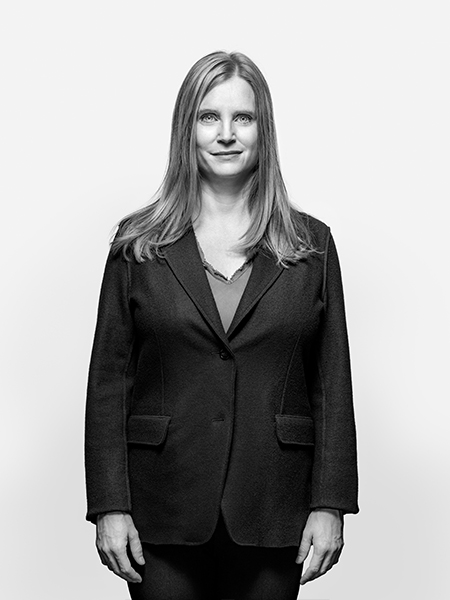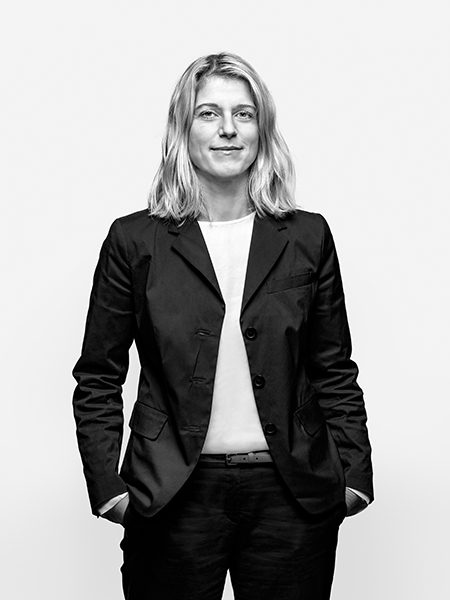What Helps People Reach Their Full Potential?
Talent Attraction and Development
What Helps People Reach Their Full Potential?
In the digital age, work is evolving and so are the expectations of professionals. New tools and work environments, unconventional career paths, and different forms of leadership are taking hold. How Clariant adapts to these changes will shape its future and that of its employees.
External Expert Interview
Anke Wolf
As a Freelance Consultant for human resources, Anke helps companies adapt their culture to new ways of collaboration and leadership.
Read the interviewHow are careers and leadership evolving?

Anke, you advise big companies in matters of talent management, leadership, and digital transformation. How do these things go together?
Digital transformation stands for a lot more than just clever ways of using and connecting data. It changes the way people work and how they collaborate. So immediately, we’re talking about new skill sets, new forms of leadership, and a different type of organization altogether.
What’s so different about this new work environment?
It gives us more flexibility, more transparency, and new ways of collaborating. But it also brings with it a certain degree of complexity and uncertainty. Take agile project management. It used to be that you’d run a development project for, say, three years and knew more or less exactly what your team had to deliver. Today’s approach is radically different. It has to be, because innovation cycles are so much shorter. Projects are typically measured in months not years with decision points every other week. We focus on a specific problem our customers may have, narrow it down step by step, and then, very gradually, circle in on a possible solution. Upfront, neither the customer nor we will know what that solution might look like. That’s a lot harder to manage. You need people who can handle this uncertainty and a culture that lets them thrive.
Where do you find these people?
First and foremost, companies will have to find them in their current workforce. You don’t necessarily need new talent.
How are employees’ expectations changing?
Probably the biggest change is that their expectations are more specific these days. That still catches some recruiters off-guard. Especially since the discussions go well beyond salary. Applicants today are more enticed by a package that may involve things like flexible working hours, training, and so on to fit their personal needs and ambitions. And then there are many other things applicants want to talk to you about. They look for a sense of purpose and they’re interested in what your company contributes to society, its ecological impact, and how it treats people. Millennials especially want to work in an environment that embraces the digital technologies they’ve grown up with. Understandably so! Everything from Google to Amazon to Snapchat has taught them that information is always available and mostly free, that feedback is immediate and personal. It’s hard to allow it to be any different in the workplace.
How is leadership changing?
There may have been a time when you could expect your boss to know everything there was to know about your business. Those times are long gone. Today, leadership is about connecting the right experts. It’s about asking the right questions and letting people come up with creative answers.
What will careers look like in the future?
Job tenure is shorter today and employees are more flexible. That doesn’t mean that professionals don’t want to see a clear career path or opportunities to grow. However, they might not be swayed as much by job titles or power. Fulfilling careers may involve ever more interesting or ambitious projects, more responsibility, more creative freedom. So we should reconsider how we approach talent management.
How so?
Rather than nominating a pool of outperforming employees that we then groom to take on leadership positions, we may want to develop individual talents and skills within all of our employees. Especially if leadership becomes less of a measure of career advancement. And if collaboration is key, you have to take a hard look at the incentives you’re giving. For instance, do individual objectives and bonuses really compel people to collaborate and share knowledge freely?
Internal Expert Interview
Klementina Pejic
As Head of Group Human Resources at Clariant, Klementina wants to foster an inspiring work environment that lets people thrive and develop their individual talents.
Read the interviewHow do we inspire people to reach their goals?

Klementina, you’ve been with Clariant for 15 years now and recently took over as Head of Human Resources. What is your overall goal in this role?
The overarching goal I’ve always worked for in any of my roles at Clariant is to contribute to a healthy organization, one that’s motivating and inspiring to people.
What is a healthy environment to you?
To me, it’s a work environment where people trust one another, where they can be authentic and open. And that has a lot to do with principled leadership.
How do you achieve that?
Through many things. First and foremost, probably through consistency in terms of decisions and actions. Also by involving people in the decision-making process in order to foster a sense of participation and fairness.
What makes that motivating and inspiring?
People need to know that their leaders act with consistency and congruency. Only a merit-based system ensures fairness and a certain predictability. Employees want to know what you expect from them and what they can expect in return. They must be able to participate and be part of the game. I believe we all want to do something meaningful that makes a difference. And we want to learn and grow.
How does Clariant empower people to grow?
For one thing, by allowing them to not be perfect and to make mistakes. And by helping them learn from those mistakes. Reliability and accountability are very important to us as a company. That might make us more risk-averse than others. But if you want people to come up with new ideas and to collaborate, you need to encourage some form of risk-taking. And you need employees who are both willing to take those risks and able to endure some pushback. Not everything you come up with is going to be brilliant right away.
Are you talking from personal experience?
Absolutely! I was quite young when I joined Clariant in a global position. It was only my second job. But I walked into management committee meetings and spoke up about things I wanted to change, about new ideas I wanted to introduce. And of course I got a lot of pushback. For me, that wasn’t the end of the world though. What mattered was that the people in charge never stopped listening. So I would typically offer to do a pilot. If the results showed I was right, we could go for it!
That surely took guts.
Yes, you need courage to speak up, to challenge established patterns, and to drive change.
Has that gotten easier over the past 15 years?
I’m sure it has. All of us at Clariant have gone through many changes over those years, and we’ve come to learn that change isn’t a bad thing.
How does Clariant help people make their next career move?
We closely follow people’s progress and assess their capabilities. And then we try and match those to what we look for in a certain role. In 2018, we filled more than 84% of open management positions with internal talent.
Why is that important to you?
It shows that we’re rewarding people based on merit rather than hiring leadership from outside. And we’re developing the skills and people we need.
Who benefits from such development tools?
We offer programs on every level – from blue-collar workers to global managers and everyone in between. One thing I strongly believe though is that you need to put people in the driver’s seat. They have to be motivated and somewhat self-reliant when it comes to developing and building their career.
You don’t believe in nudging people?
Not too much. People are motivated to different degrees. They have different preferences and ambitions. I encourage everyone to talk openly about career goals. Those don’t have to be about climbing a corporate ladder. Development can also mean taking on new and interesting project work or new functional experiences.